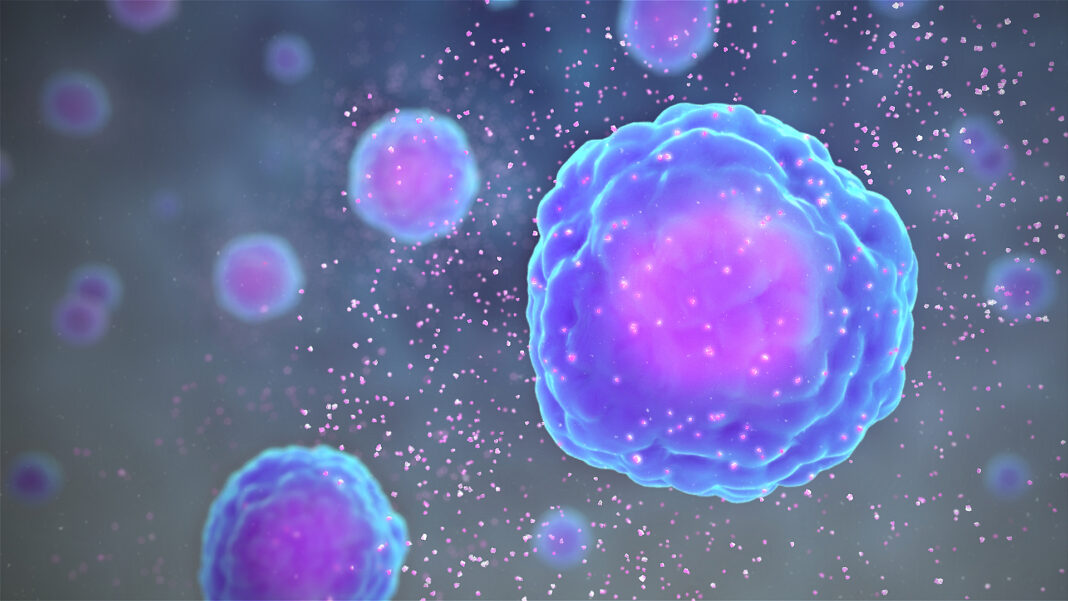Findings published in the Proceedings of the National Academy of Sciences on February 21 highlighted that people who carry a genetic variant (a permanent alteration in the DNA sequence that constitutes a gene) for coronavirus disease 2019 (COVID-19) also manifest a 27% lesser probability of getting infected with HIV.
The variant identified by researchers is generally connected with severe COVID-19 and is situated on chromosome 3, specifically in an area that leads to the production of chemokine receptors (receptors for a type of small soluble proteins released from cells that affect the immune system). In 2020, Svante Paabo at MPI-EVA and Hugo Zeberg at Karolinska Institutet and MPI-EVA discovered that individuals inherited the chief genetic risk factor that causes severe COVID-19 from Neanderthals. Moreover, in 2021, their research team assessed this genetic variant in primaeval human DNA and detected a substantial increase in its frequency since the last ice age.
In this recent study, Hugo Zeberg stated that this variant may have possibly created a favorable influence on its carriers previously. Considering the abundance of this chief genetic risk factor for COVID-19, he began investigating its protective action against other infectious illnesses.
He found that individuals carrying this risk factor display reduced levels of chemokine receptors, namely CCR3, CCR5, and CXCR6. Interestingly, lesser expression of these receptors has been correlated with a reduced prevalence of HIV. Zeberg precisely focused on CCR5, which plays an essential role in the procedure by which HIV infection invades body cells. The article mentioned the absence of a direct predictor for the inheritance of the identified risk haplotype (a group of genes inherited from a single parent). However, this haplotype has carrier frequencies of 50% in South Asia and 16% in Europe.
A genetic variant can be good and bad at the same time
Zeberg conducted a meta-analysis of the Michigan Genomics Initiative, the UK Biobank, and FinnGen to determine the HIV risk ratio. Briefly, the genomes of 591 individuals of European descent having HIV and 667,215 controls were analyzed. In all three cohorts, individuals carrying the risk allele for COVID-19 demonstrated a general HIV risk ratio of 0.73, thus suggesting they had a 27% lower risk of acquiring HIV infection than the controls or non-carriers.
Zeberg wrote that this genetic variant has resulted in disastrous consequences since the outbreak of the pandemic; nonetheless, it might have offered substantial safeguard against HIV infection to all individuals during the last four decades. Therefore, the articles highlighted how any genetic variant can be considered both good and bad. A person contracting COVID-19 is bad, whereas the HIV-protecting capability of the variant is good. Zeberg concluded that the variant probably provided a safeguard against another illness that augmented its frequency following the last ice age.
References
Zeberg, H. (2022). The major genetic risk factor for severe COVID-19 is associated with protection against HIV. Proceedings of the National Academy of Sciences, 119(9). https://doi.org/10.1073/pnas.2116435119
Zeberg, H., & Pääbo, S. (2020). The MERS-CoV receptor gene is among COVID-19 risk factors inherited from Neandertals. bioRxiv. https://doi.org/10.1101/2020.12.11.422139
Zeberg, H., & Pääbo, S. (2020). The major genetic risk factor for severe COVID-19 is inherited from Neanderthals. Nature, 587(7835), 610-612. https://doi.org/10.1038/s41586-020-2818-3
Galvani, A. P., & Slatkin, M. (2003). Evaluating plague and smallpox as historical selective pressures for the CCR5-Δ32 HIV-resistance allele. Proceedings of the National Academy of Sciences, 100(25), 15276-15279. https://doi.org/10.1073/pnas.2435085100
Features illustration: www.scientificanimations.com



